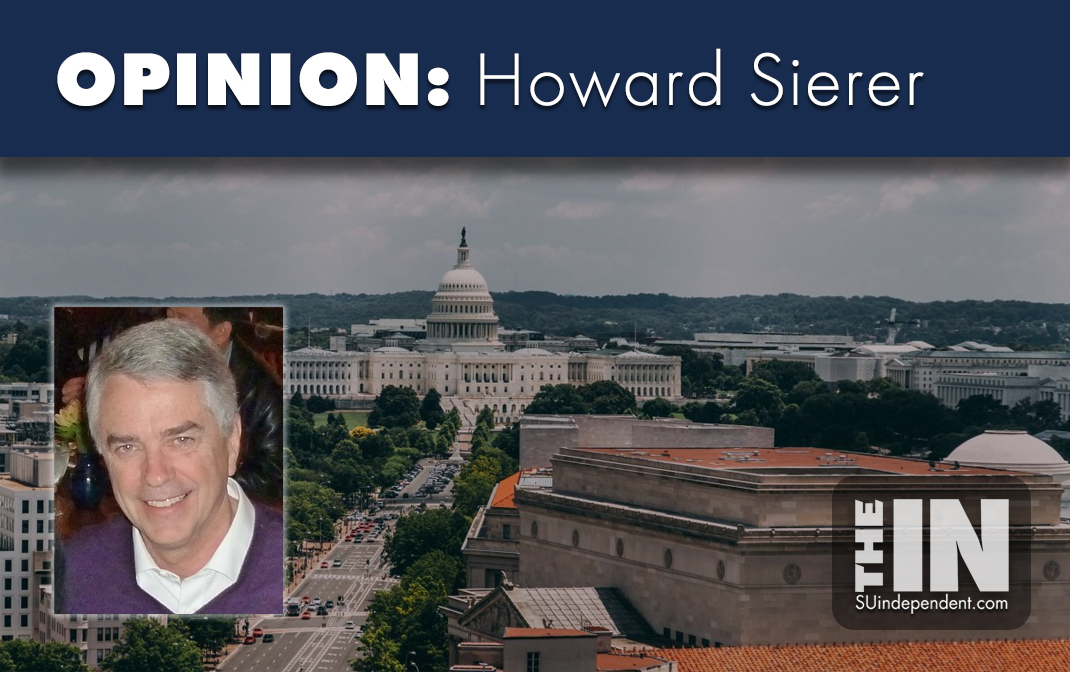
Government Makes Big Companies Bigger
– By Howard Sierer –
Government elected officials and bureaucrats don’t feel they are doing their jobs unless they continually enact new laws and promulgate new regulations intended to “improve” our free market economy. Yet recent history shows how government economic regulation, mandates, and price controls, by their very nature, distort markets, raise prices, and have unintended consequences.
Those unintended consequences often end up benefitting the biggest companies to the detriment of their smaller competitors in heavily regulated industries. Start with a recent example: Democratic Sen. Elizabeth Warren has finally acknowledged that Obamacare has increased healthcare prices and driven healthcare industry consolidation.
Obamacare legislation included provisions that required healthcare insurers to spend at least 80% of their premium income on medical benefits. Democrats claimed the rule would make health spending more transparent and reduce insurer spending on administration and overhead.
The unintended consequence: smaller insurers were unable to spread these new regulatory compliance costs across enough policies. The obvious, business school 101 answer: sellout or merge with another company, combining premium income while consolidating management and back office expenses.
Another government program is driving hospitals and doctors’ practices to consolidate. Medicaid’s expansion over the years covers an increasing percentage of their patients. The government knowingly reimburses below the cost of service for both doctors and hospitals. Their only alternative is mergers and combinations to gather up enough patients with private insurance to cover their regulatory compliance and overhead costs.
Government-controlled socialized medicine is much closer than most Americans realize, and as bitter experience in Great Britain and elsewhere shows, it will inevitably result in both poorer care and higher costs.
Take another industry with extensive government regulation: banking. In the wake of the Great Recession in 2007-2009, the Dodd-Frank Act did to the banking industry what Obamacare did to healthcare. The act made changes affecting all federal financial regulatory agencies and almost every part of the nation’s financial services industry. In the process, it imposed compliance costs that were prohibitively expensive for many small banks, resulting in closures and mergers that have effectively wiped out market competition for big (politically favored) banks.
Smaller, local banks were deprived of income by another government policy. Obamacare was supposed to be paid for in part by the government’s takeover of student loans from private banks, eliminating the banks as middlemen and instead providing what had been bank revenue to the federal government. But that government revenue stream has been greatly reduced by Pres. Biden as he suspended loan repayments far beyond the end of the pandemic and continues to find ways to excuse student debt (and buy votes in the process).
Dodd-Frank created a Consumer Financial Protection Bureau that was charged with protecting consumers from abuses related to credit cards, mortgages, and other financial products. The new bureau put in place regulations intended to correct the issues that Congress had noted. Then, like all agencies created to address specific problems, it has overstepped the authority Congress gave it, claiming now it can enlist states to enforce federal consumer financial protection laws. Bureaucrats must keep issuing regulations to justify their continued funding.
Defense contractors are another industry completely under the sway of the government. With effectively only one customer, defense companies are forced into taking steps that they would prefer to avoid. For example, they have been forced to embrace controversial political movements of recent decades imposed on them by Democratic administrations, among them providing mandatory employee training on affirmative action, LGBTQ acceptance and DEI principles.
Today’s economy is dominated by government. A glance at the business section of the Wall Street Journal on almost any day shows that at least half the articles discuss government programs, regulations and actions that dictate company policies and products.
The danger to the U.S. is made clear in an article titled Europe Regulates Its Way to Last Place. “These are humbling times for Europe…the European Union still leads the world [in] regulation, having set the standard on regulating mergers, carbon emissions, data privacy and e-commerce competition.” The article’s author repeats a well-known maxim, “America innovates, China replicates, Europe regulates.”
That sums up a great risk to our country’s place in the world. Over-regulating leads to big companies, and big companies are rarely the source of innovative new ideas and products.
So what will Sen. Warren propose to do about healthcare industry consolidation driven by Obamacare? Propose more government regulation, of course. And when that creates more unintended consequences – as it surely will – even more regulation will follow.
It’s a familiar story: Big government intrusion will be fixed by more big government intrusion. What could go wrong?
Viewpoints and perspectives expressed throughout The Independent are those of the individual contributors. They do not necessarily reflect those held by the staff of The Independent or our advertising sponsors. Your comments, rebuttals, and contributions are welcome in accordance with our Terms of Service. Please be respectful and abide by our Community Rules. If you have privacy concerns you can view our Privacy Policy here. Thank you!
Click here to submit an article, guest opinion piece, or a Letter to the Editor




